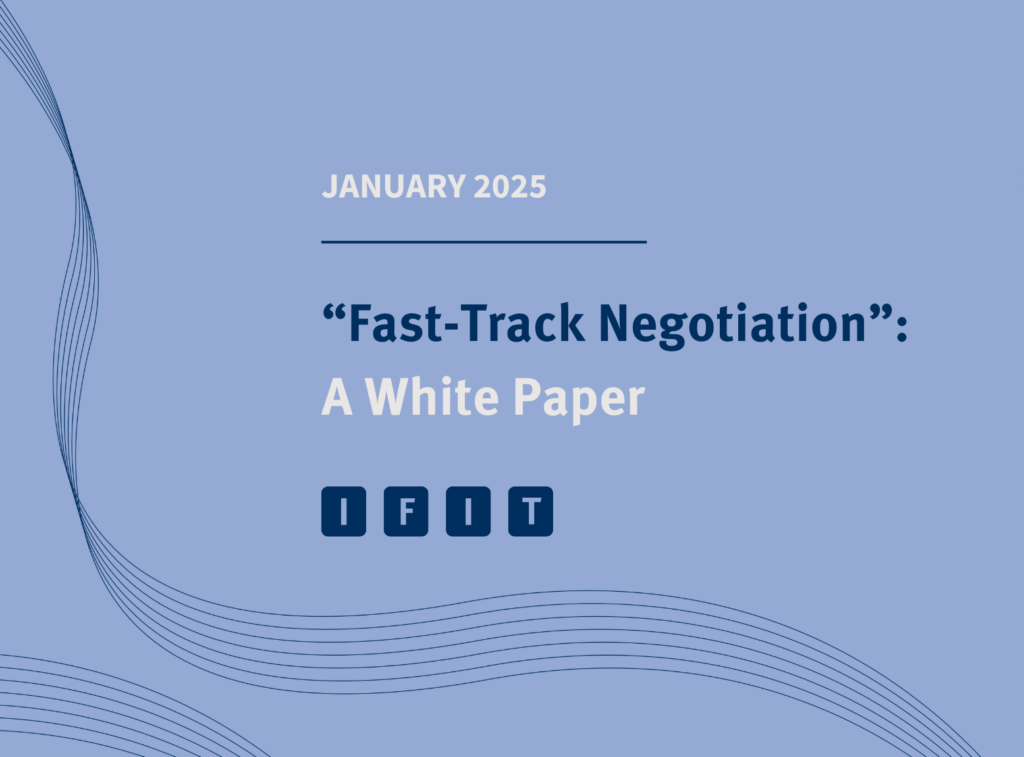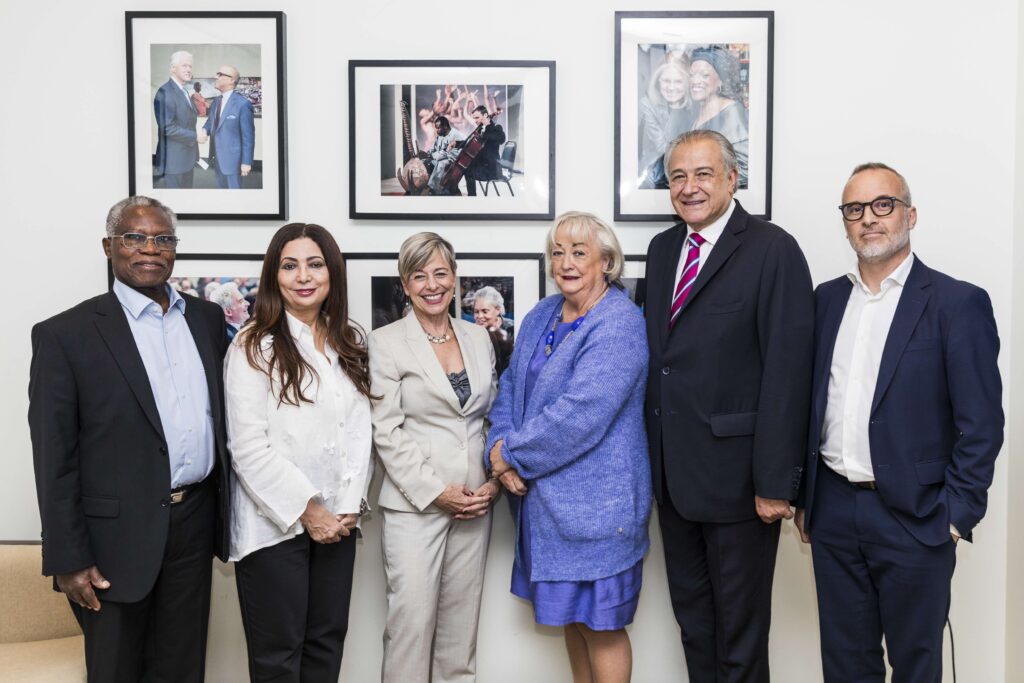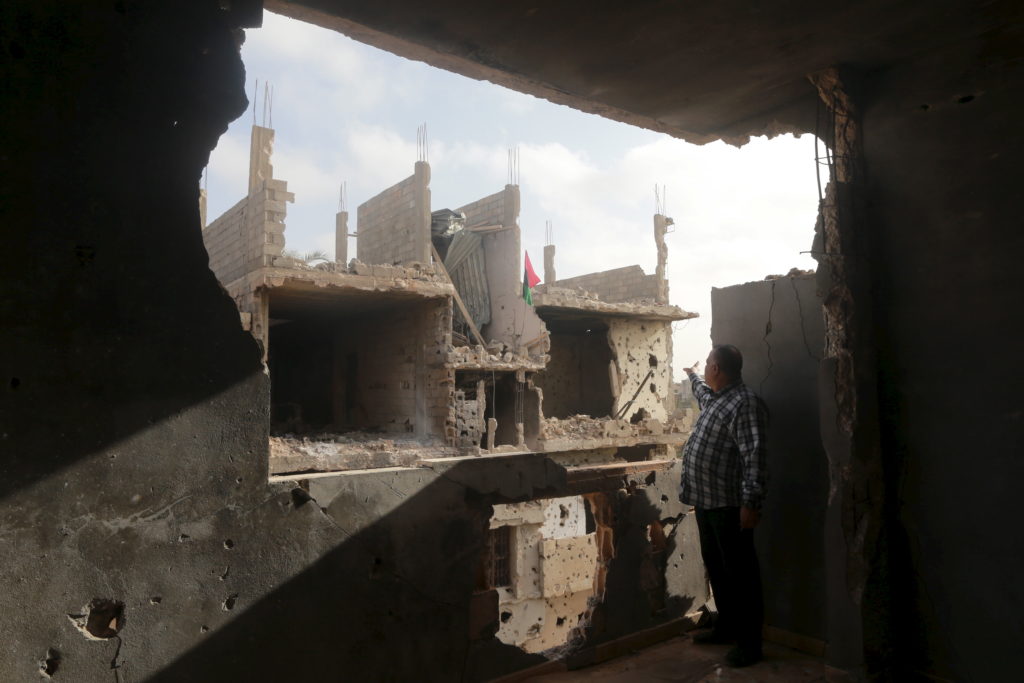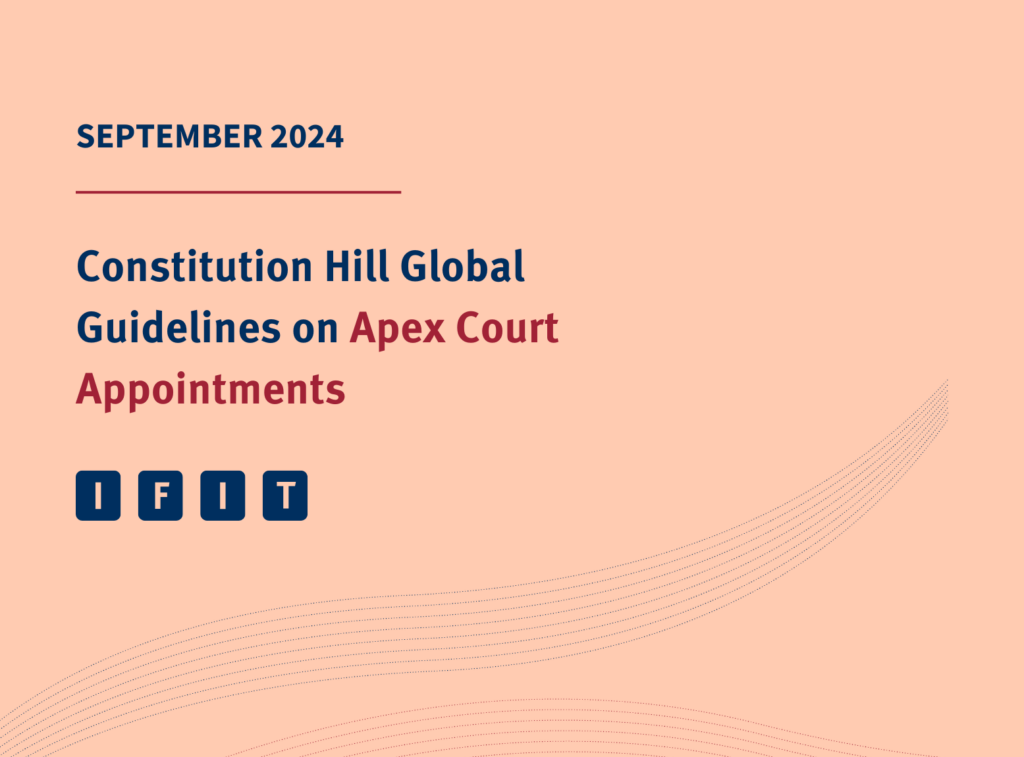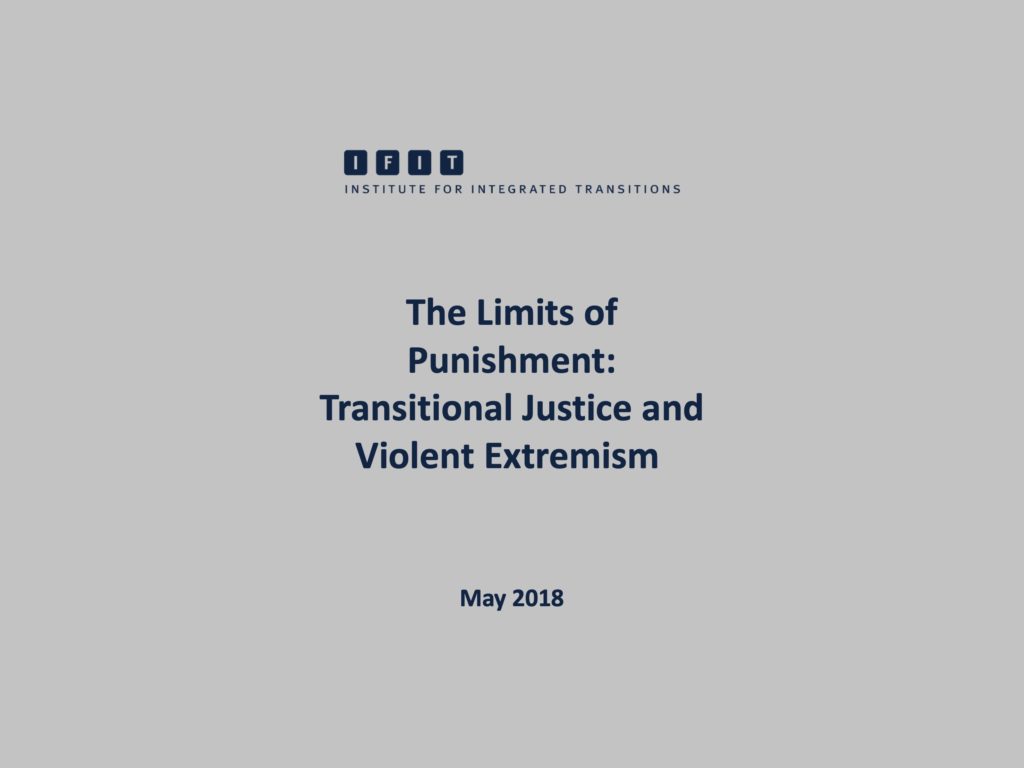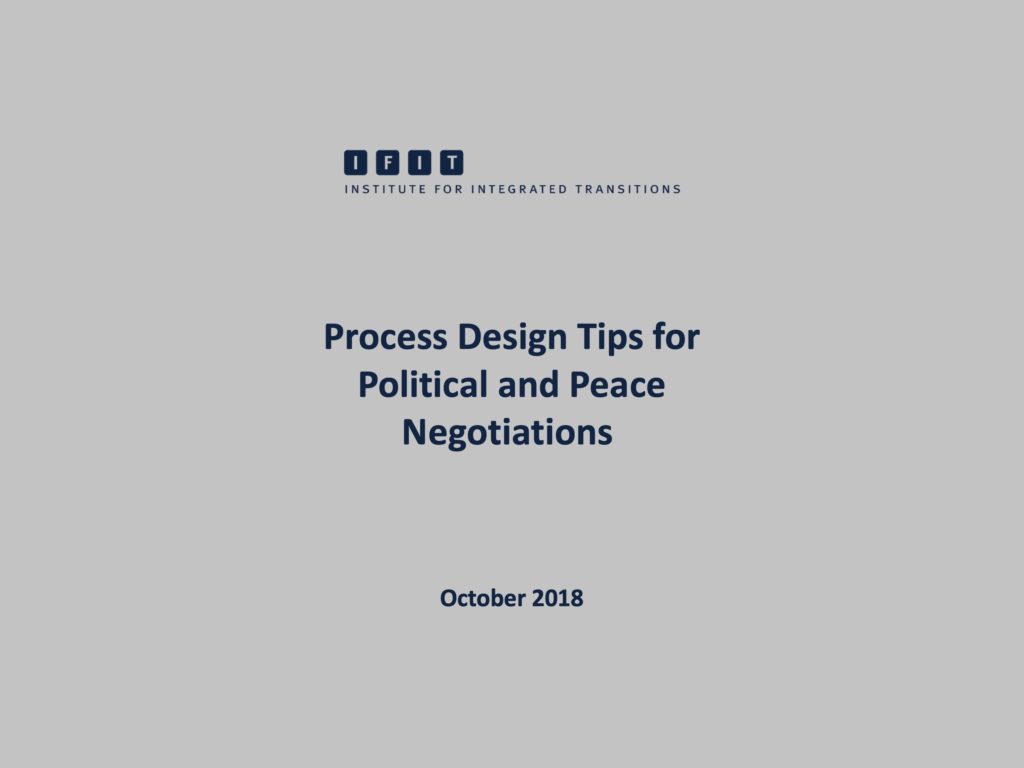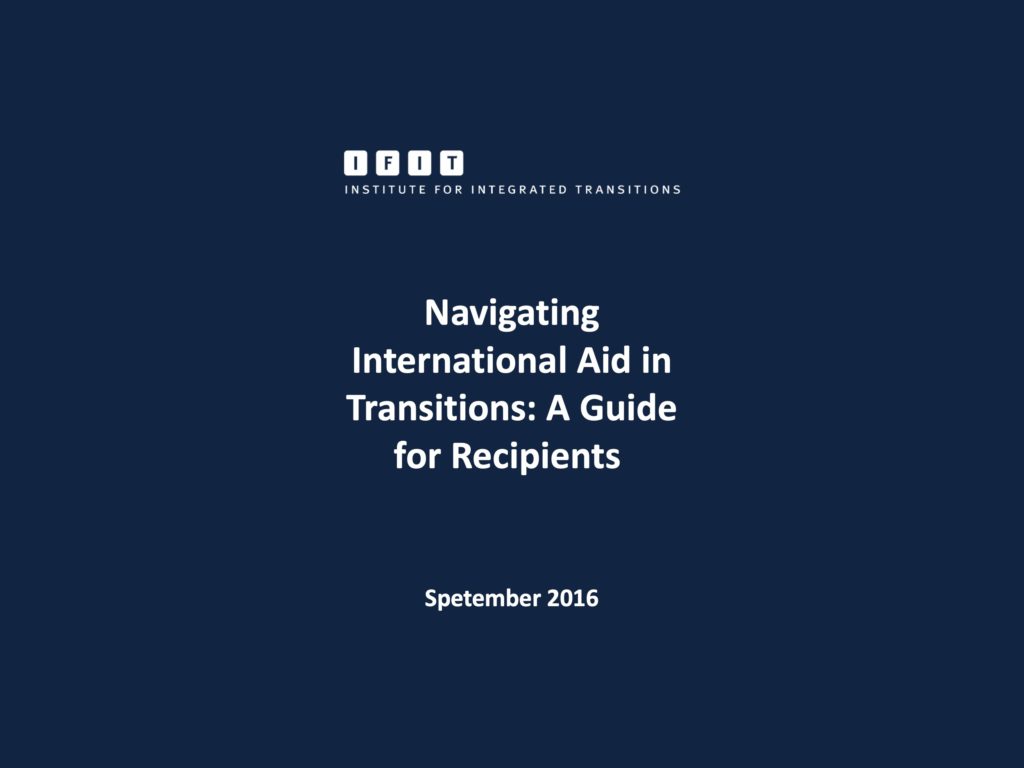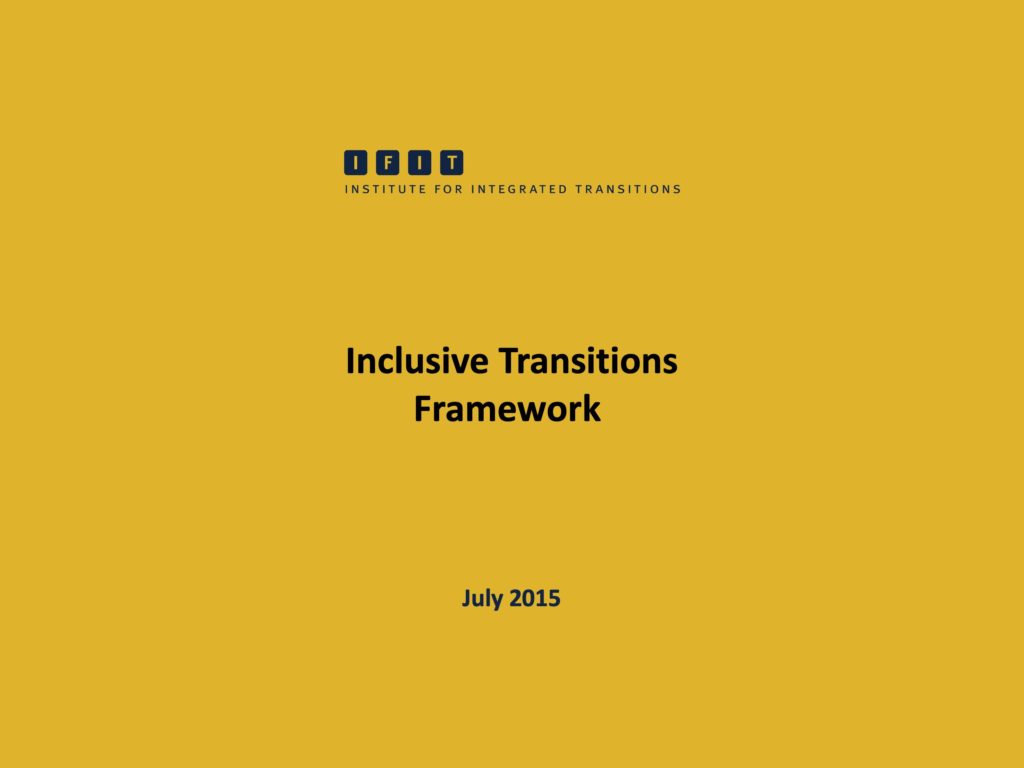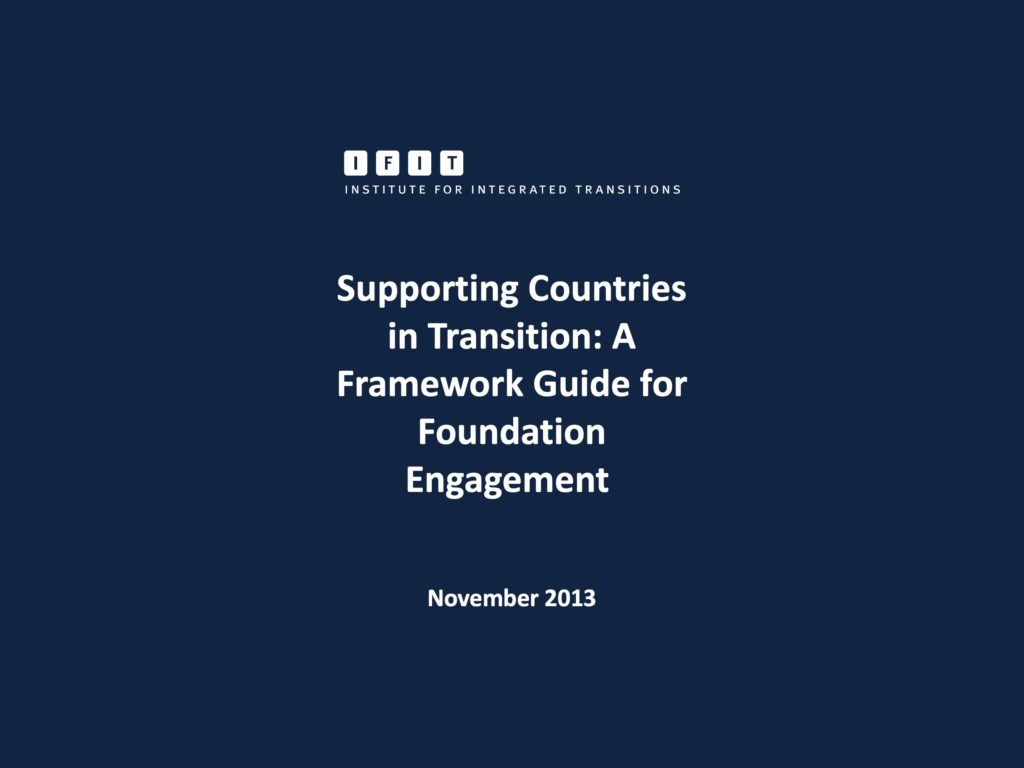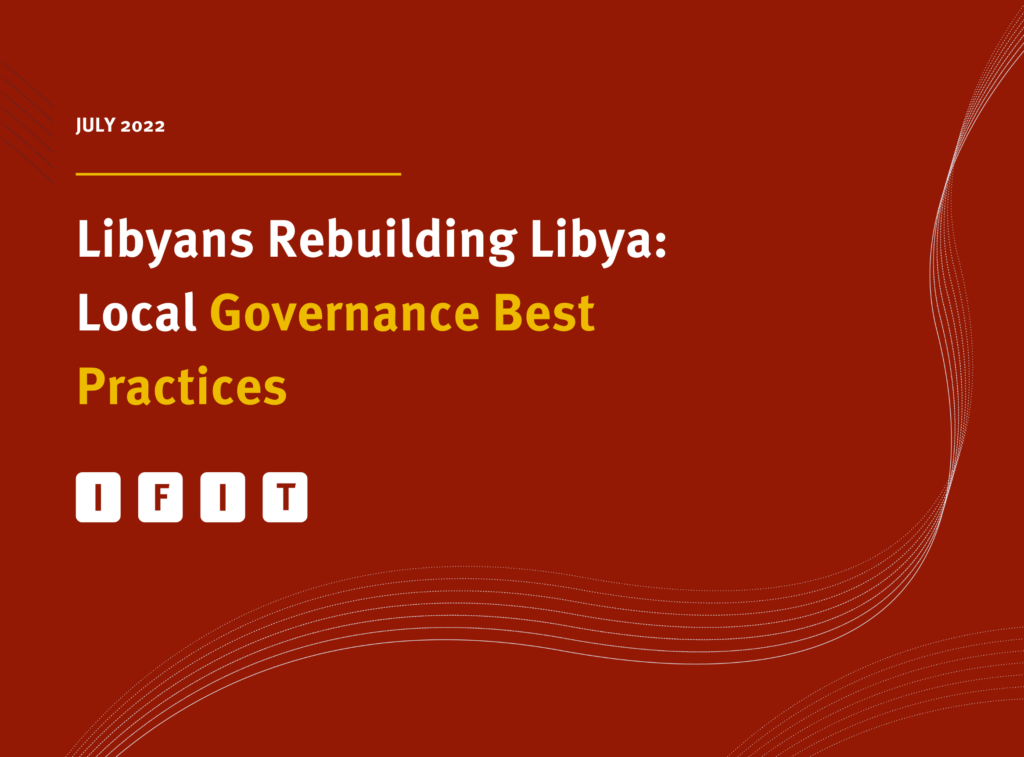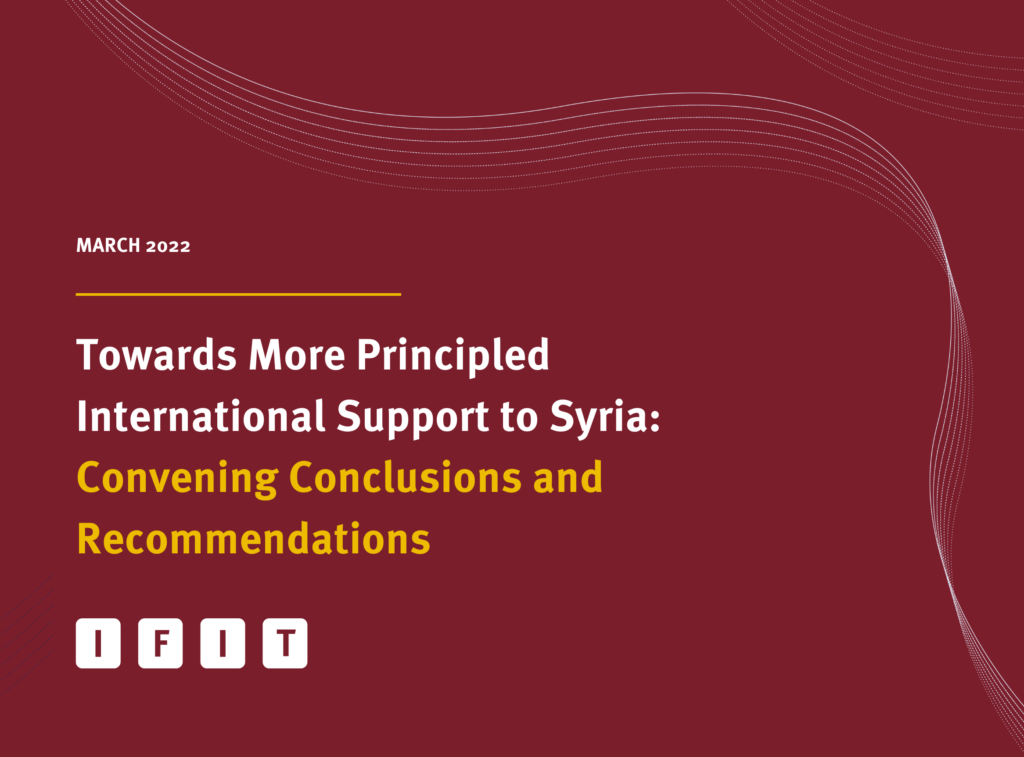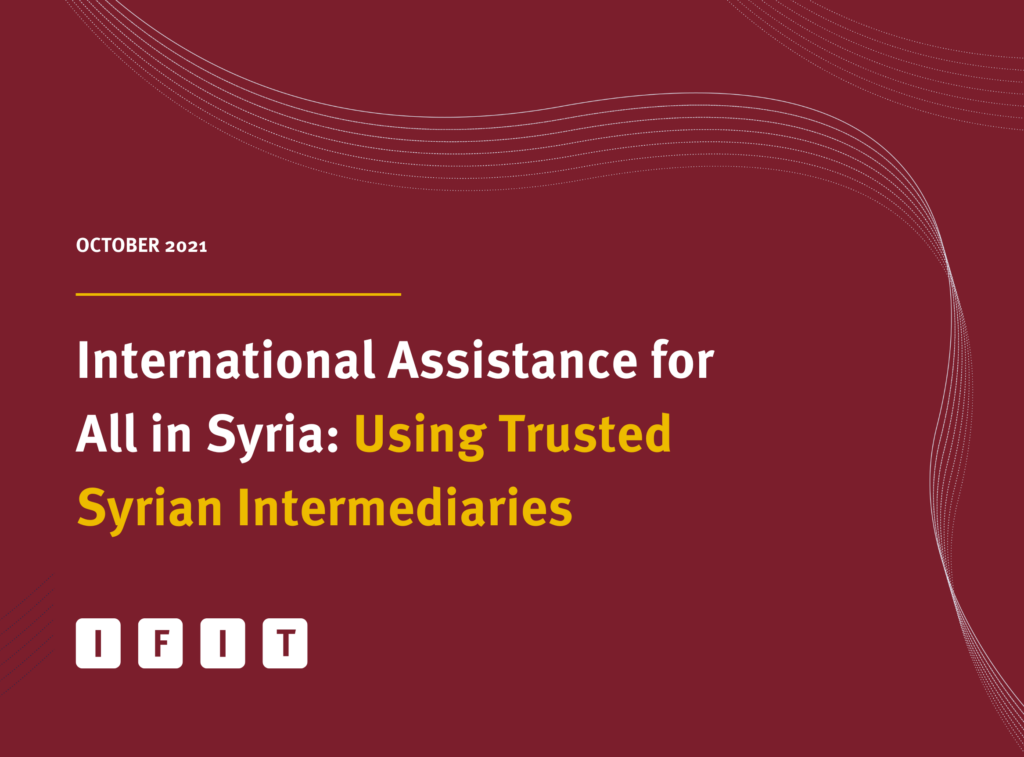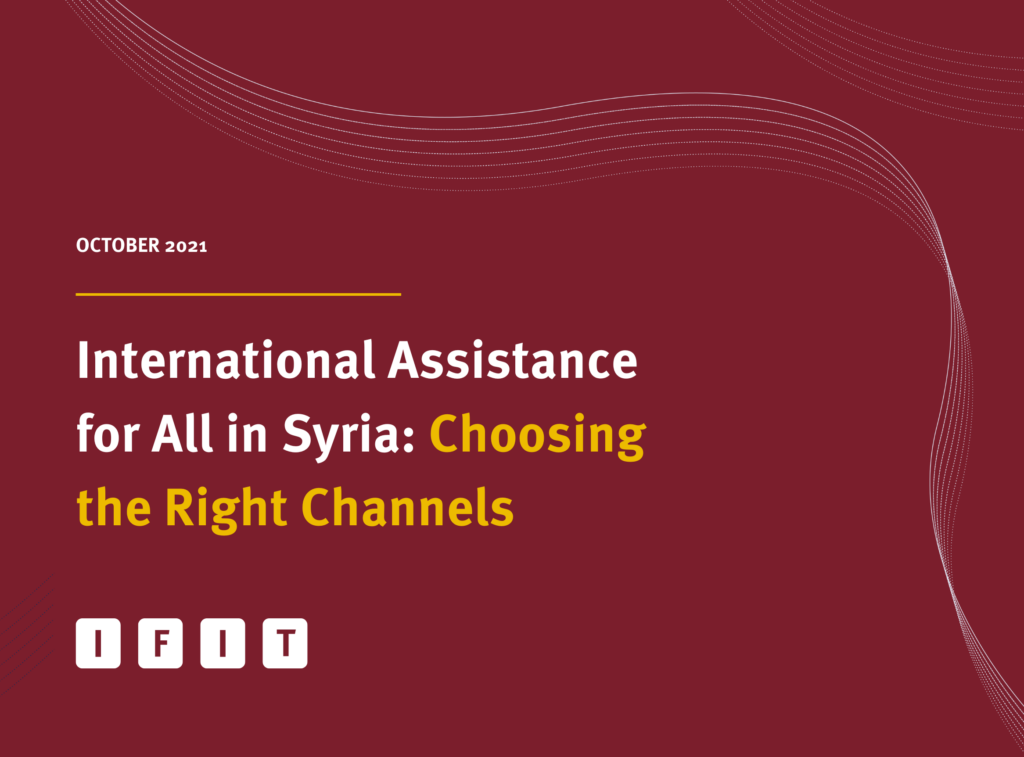Célia is the new fellow with IFIT’s Law and Peace Practice Group (LPPG) in Bogotá. She is French-Algerian, and currently pursuing a Master of International Affairs at Columbia University’s School of International and Public Affairs (SIPA). There, she specialises in International Conflict Resolution. Her academic work focuses on adaptive mediation strategies, transitional justice, and peace processes; most recently exploring the 2025 Ukraine-Russia negotiations led by the Trump Admin, as well as the 2016 Colombian Peace Accord.
Prior to joining IFIT, she worked on multilateral diplomacy and policy negotiations at the Permanent Missions of the Maldives and Oman to the United Nations, as well as with the UN Institute for Training and Research (UNITAR) in New York. She has also been involved in Columbia University campus initiatives related to mediation, gender equality, and conflict resolution.
She is very excited to work with the Bogota Team on LPPG and on-going LATAM thematics, and looks forward to strengthening her field-based experience in Latin America through this internship.
Working languages: Spanish, English and French.
You may also be interested in
The Global Initiative on Polarization is a multiyear collaboration led by IFIT and the Ford Foundation and in the process of expanding to include other philanthropic partners. Its principal aim is to foster deeper global and local understandings of the diverse causes, consequences and solutions to growing polarization worldwide.
Over the past few years, we have carried out interdisciplinary research, structured convenings, and applied work in a globally diverse range of countries, along the way publishing a foundational paper as well as partnering with Economist Impact to produce a customized webpage of additional material following a high-level May 2024 convening, “Worlds Apart: Lessons on Polarization from Global Leaders”.
We are now launching an important new phase of work through the establishment of the Depolarization Community of Practice (DCP): a diverse global group of 40 depolarization scholars and practitioners with the aim of incubating new research agendas and practice collaborations; providing training and peer support; and facilitating the promotion of field-relevant lessons through periodic online exchanges and presentations.
The DCP will be directly connected to another major IFIT initiative: the Global Forum on Depolarization. This annual flagship IFIT event is a first of its kind and will have a combined knowledge-sharing and problem-solving format, seeking to function, among other things, as a “conveyor belt” for innovative new practice and research. The first edition of the Global Forum on Depolarization will take place at IFIT HQ in Barcelona this fall.
- Read more about our Global Initiative on Polarization here.
- Watch the video “The path to depolarization”.
You may also be interested in
Ian Liu serves as a Summer Intern at the Institute for Integrated Transitions (IFIT).
He is currently an undergraduate student at Princeton University, studying Public and International Affairs. Ian brings experience in research and public policy development through his academic work and professional roles, including as a research assistant for several Princeton centers such as the Center for the Study of Democratic Politics and the Niehaus Center for Globalization and Governance. He has also engaged with the United Nations in New York.
Working languages: English, Mandarine, and French.
You may also be interested in
Angie Rodriguez is an intern with the Institute for Integrated Transitions (IFIT) in their Bogotá office. She is a rising senior studying in Princeton University’s School of Public and International Affairs with minors in Latin American Studies and Spanish. Her interests lie in immigration, the Latin American region, and education.
Angie has previously worked with the Latin American Legal Defense and Education Fund, aiding in their efforts to provide a range of services to immigrants in the area. She also spends her time supporting low-income high school students as they navigate the college admissions process and carrying out service projects with Princeton’s Civic Leadership Council. Additionally, Angie is involved in SPLASH, an organization seeking to provide a learning experience for high school students as they attend student-led courses at Princeton.
Working languages: Spanish and English.
You may also be interested in
Nathalie Bussemaker is an Extern with the Institute for Integrated Transitions. She is currently completing a Master in Public Policy at the Harvard Kennedy School and holds a BA in Global Affairs and History from Yale.
Nathalie also serves as the executive director of Ventures Beyond Borders, a nonprofit focused on refugee entrepreneurship. She previously worked at Schmidt Futures, a philanthropic initiative of Eric Schmidt. Nathalie also spent a year in Jordan as a Parker Huang Postgraduate Fellow and has interned with the US State Department, the Council on Foreign Relations, and the Middle East Institute.
Working languages: English and Dutch.
You may also be interested in
At the Center for Strategic and International Studies, a Washington, D.C.-based think tank, the Futures Lab is working on projects to use artificial intelligence to transform the practice of diplomacy.
With funding from the Pentagon’s Chief Digital and Artificial Intelligence Office, the lab is experimenting with AIs like ChatGPT and DeepSeek to explore how they might be applied to issues of war and peace.
While in recent years AI tools have moved into foreign ministries around the world to aid with routine diplomatic chores, such as speech-writing, those systems are now increasingly being looked at for their potential to help make decisions in high-stakes situations. Researchers are testing AI’s potential to craft peace agreements, to prevent nuclear war and to monitor ceasefire compliance.
The Defense and State departments are also experimenting with their own AI systems. The U.S. isn’t the only player, either. The U.K. is working on “novel technologies” to overhaul diplomatic practices, including the use of AI to plan negotiation scenarios. Even researchers in Iran are looking into it.
Futures Lab Director Benjamin Jensen says that while the idea of using AI as a tool in foreign policy decision-making has been around for some time, putting it into practice is still in its infancy.
Doves and hawks in AI
In one study, researchers at the lab tested eight AI models by feeding them tens of thousands of questions on topics such as deterrence and crisis escalation to determine how they would respond to scenarios where countries could each decide to attack one another or be peaceful.
The results revealed that models such as OpenAI’s GPT-4o and Antropic’s Claude were “distinctly pacifist,” according to CSIS fellow Yasir Atalan. They opted for the use of force in fewer than 17% of scenarios. But three other models evaluated — Meta’s Llama, Alibaba Cloud’s Qwen2, and Google’s Gemini — were far more aggressive, favoring escalation over de-escalation much more frequently — up to 45% of the time.
What’s more, the outputs varied according to the country. For an imaginary diplomat from the U.S., U.K. or France, for example, these AI systems tended to recommend more aggressive — or escalatory — policy, while suggesting de-escalation as the best advice for Russia or China. It shows that “you cannot just use off-the-shelf models,” Atalan says. “You need to assess their patterns and align them with your institutional approach.”
Russ Berkoff, a retired U.S. Army Special Forces officer and an AI strategist at Johns Hopkins University, sees that variability as a product of human influence. “The people who write the software — their biases come with it,” he says. “One algorithm might escalate; another might de-escalate. That’s not about the AI. That’s about who built it.”
The root cause of these curious results presents a black box problem, Jensen says. “It’s really difficult to know why it’s calculating that,” he says. “The model doesn’t have values or really make judgments. It just does math.”
CSIS recently rolled out an interactive program called “Strategic Headwinds” designed to help shape negotiations to end the war in Ukraine. To build it, Jensen says, researchers at the lab started by training an AI model on hundreds of peace treaties and open-source news articles that detailed each side’s negotiating stance. The model then uses that information to find areas of agreement that could show a path toward a ceasefire.
At the Institute for Integrated Transitions (IFIT) in Spain, Executive Director Mark Freeman thinks that kind of artificial intelligence tool could support conflict resolution. Traditional diplomacy has often prioritized lengthy, all-encompassing peace talks. But Freeman argues that history shows this approach is flawed. Analyzing past conflicts, he finds that faster “framework agreements” and limited ceasefires — leaving finer details to be worked out later — often produce more successful outcomes.
“There’s often a very short amount of time within which you can usefully bring the instrument of negotiation or mediation to bear on the situation,” he says. “The conflict doesn’t wait and it often entrenches very quickly if a lot of blood flows in a very short time.”
Instead, IFIT has developed a fast-track approach aimed at getting agreement early in a conflict for better outcomes and longer-lasting peace settlements. Freeman thinks AI “can make fast-track negotiation even faster.”
Andrew Moore, an adjunct senior fellow at the Center for a New American Security, sees this transition as inevitable. “You might eventually have AIs start the negotiation themselves … and the human negotiator say, ‘OK, great, now we hash out the final pieces,'” he says.
Moore sees a future where bots simulate leaders such as Russia’s Vladimir Putin and China’s Xi Jinping so that diplomats can test responses to crises. He also thinks AI tools can assist with ceasefire monitoring, satellite image analysis and sanctions enforcement. “Things that once took entire teams can be partially automated,” he says.
Strange outputs on Arctic deterrence
Jensen is the first to acknowledge potential pitfalls for these kinds of applications. He and his CSIS colleagues have sometimes been faced with unintentionally comic results to serious questions, such as when one AI system was prompted about “deterrence in the Arctic.”
Human diplomats would understand that this refers to Western powers countering Russian or Chinese influence in the northern latitudes and the potential for conflict there.
The AI went another way.
When researchers used the word “deterrence,” the AI “tends to think of law enforcement, not nuclear escalation” or other military concepts, Jensen says. “And when you say ‘Arctic,’ it imagines snow. So we were getting these strange outputs about escalation of force,” he says, as the AI speculated about arresting Indigenous Arctic peoples “for throwing snowballs.”
Jensen says it just means the systems need to be trained — with such inputs as peace treaties and diplomatic cables, to understand the language of foreign policy.
“There’s more cat videos and hot takes on the Kardashians out there than there are discussions of the Cuban Missile Crisis,” he says.
AI can’t replicate a human connection — yet
Stefan Heumann, director of Agora Digital Transformation, a Berlin based think tank working at the intersection of technology and public policy, has other concerns. “Human connections — personal relationships between leaders — can change the course of negotiations,” he says. “AI can’t replicate that.”
At least at present, AI also struggles to weigh the long-term consequences of short-term decisions, says Heumann, a member of the German parliament’s Expert Commission on Artificial Intelligence. “Appeasement at Munich in 1938 was viewed as a de-escalatory step — yet it led to catastrophe,” he says, pointing to the deal that ceded part of Czechoslovakia to Nazi Germany ahead of World War II. “Labels like ‘escalate’ and ‘de-escalate’ are far too simplistic.”
AI has other important limitations, Heumann says. It “thrives in open, free environments,” but “it won’t magically solve our intelligence problems on closed societies like North Korea or Russia.”
Contrast that with the wide availability of information about open societies like the U.S. that could be used to train enemy AI systems, says Andrew Reddie, the founder and faculty director of the Berkeley Risk and Security Lab at the University of California, Berkeley. “Adversaries of the United States have a really significant advantage because we publish everything … and they do not,” he says.
Reddie also recognizes some of the technology’s limitations. As long as diplomacy follows a familiar narrative, all might go well, he says, but “if you truly think that your geopolitical challenge is a black swan, AI tools are not going to be useful to you.”
Jensen also recognizes many of those concerns, but believes they can be overcome. His fears are more prosaic. Jensen sees two possible futures for the role of AI systems in the future of American foreign policy.
“In one version of the State Department’s future … we’ve loaded diplomatic cables and trained [AI] on diplomatic tasks,” and the AI spits out useful information that can be used to resolve pressing diplomatic problems.
The other version, though, “looks like something out of Idiocracy,” he says, referring to the 2006 film about a dystopian, low-IQ future. “Everyone has a digital assistant, but it’s as useless as [Microsoft’s] Clippy.“
Originally published in NPR.
You may also be interested in

We are pleased to announce a new IFIT regional initiative.
Building on years of intensive IFIT work in individual countries ranging from Syria to Libya, Sudan and Tunisia, our inaugural Regional Programme for the Middle East and North Africa (MENA) adds a fresh layer of analysis and action to our existing work.
The programme aims to bring new ideas that can help expand the spectrum of perceived solutions to crisis and conflict in the region; bridge violent divides; and amplify expert voices on key regional issues of negotiation and transition.
We will be providing more information about the programme in the coming weeks and months.
You may also be interested in
Community dialogue practitioners play a vital role in developing practical solutions to local issues. They act as effective conduits for elevating these proposals to the national level, advocating for policy reform and implementation.
This toolkit—developed as part of IFIT’s Bottom-Up Dialogue work in Zimbabwe—is intended to support dialogue practitioners in promoting successful and sustainable outcomes for community dialogues across the country. It draws on insights from 13 cases of community dialogue conducted nationwide between 2018 and 2023, all examined in IFIT’s report Promoting Bottom-Up Dialogue: A Study of Community-Level Dialogue Experiences in Zimbabwe.
These findings are further enriched by contributions from Zimbabwean experts and community-based and civil society organisations engaged in convening dialogues across the country. These include the Institute for Local Governance (ILC), Youth Empowerment and Transformation Trust (YETT), Community Youth in Development Trust (CYDT), Youth in Peace Building Initiative Trust (YIPIT), and Zimbabwe Women Against Corruption Trust (ZWACT).
The DOI registration ID for this publication is: https://doi.org/10.5281/zenodo.15119773
You may also be interested in
IFIT / WELCOME TO the Regional Programme for the Middle East and North Africa
Regional Programme for the Middle East and North Africa
IFIT was founded in the wake of the Arab Spring, and with the mission of supporting local actors with integrated policy analysis to facilitate more inclusive and sustainable transitions out of war, crisis and authoritarianism worldwide.
Scroll down for more
Building on years of intensive IFIT work in individual countries ranging from Syria to Libya, Sudan and Tunisia, the Regional Programme for the Middle East and North Africa (MENA) adds a broader layer of analysis and action to our existing work, while also leveraging key expertise and lessons from our thematic and global research on issues like narrative change and polarisation.
The programme aims to bring new ideas that can help expand the spectrum of perceived solutions to crisis and conflict in the region; bridge violent divides; and amplify expert voices on key regional issues of negotiation and transition.












